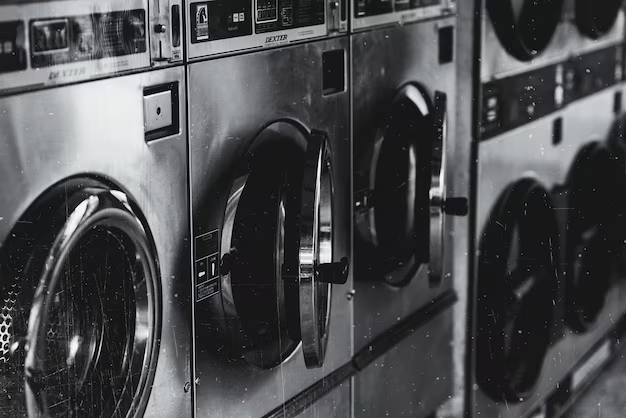Unveiling the Evolution of Refrigeration: Who Really Invented the Refrigerator?
The refrigerator is an essential appliance found in virtually every household, but few stop to consider its fascinating origins. The invention of the refrigerator wasn't the result of a single "eureka" moment but rather a gradual technological evolution spanning over a century. Dive into this chilling tale of innovation as we explore which company invented the refrigerator and uncover the history and milestones leading to the modern, frost-free companions we rely on today.
A Brief History of Refrigeration Innovation
The concept of refrigeration precedes the invention of the refrigerator itself. Human societies have always sought ways to preserve food, from ancient Roman ice pits to Chinese snow cellars. Refrigeration as a scientific concept began to take shape in the 18th century, paving the way for the refrigerator's invention.
Key Developments in Refrigeration
Early Cooling Techniques: Before mechanical refrigeration, people used natural means like ice and snow to cool and preserve food.
Scientific Advances: In the 1750s, Scottish professor William Cullen demonstrated artificial cooling, a precursor to practical refrigeration.
Adoption of Vapor Compression: The 19th century saw the development of vapor-compression technology, which laid the groundwork for the refrigerators we use today.
The Role of Patents and Prototypes
Refrigeration breakthroughs were incremental and scattered across different inventors and companies. Patents became vital in claiming ownership and driving further innovation.
The Pioneers: Companies and Inventors Behind the Refrigerator
While it may seem straightforward to pinpoint a single company as the inventor of the refrigerator, the reality is more nuanced. The evolution involved a series of innovators and entrepreneurs whose collective efforts eventually led to the home refrigerators we recognize today.
Inventor Oliver Evans
In 1805, Oliver Evans conceptualized a vapor-compression refrigeration cycle but never built it. His theoretical framework would inspire later inventors to create the first working models.
Jacob Perkins and the Working Model
Fast forward to 1834, and American inventor Jacob Perkins built the first workable vapor-compression refrigeration system. His innovation earned him the distinction of producing the earliest recognizable refrigerator prototype.
The Role of Carl von Linde
German engineer Carl von Linde is often credited with refining these early concepts. In 1876, he designed and built the first reliable and more efficient system for gas distillation, which paved the way for large-scale refrigeration storage.
Establishing Refrigeration Giants
By the late 19th and early 20th centuries, several companies emerged as leaders in the refrigeration market, pioneering the commercial production and widespread adoption of home refrigerators.
General Electric and the Electric Era
General Electric (GE) was pivotal in introducing the first refrigerator unit powered by electricity in the 1920s, marking the transition from the nascent stages of refrigeration technology to a wider consumer market.
Kelvinator and Frigidaire
Two of the most notable names in early refrigeration manufacturing were Kelvinator and Frigidaire. These companies were not only pioneers in design but also helped popularize the refrigerator as a household staple.
The Refrigerator Revolution: From Luxury to Necessity
In the early 20th century, refrigerators were considered luxury items. As manufacturing processes improved and costs decreased, refrigerators became an essential appliance accessible to the average family.
Society and the Refrigerator Boom
Post-WWII Prosperity: The economic boom following World War II led to rapid suburbanization, sparking a massive increase in household appliance ownership.
Advertising and Consumerism: The rise of consumer culture and effective marketing strategies drove the refrigerator's transformation into a common household item.
Innovation in Design and Efficiency: Companies innovated with better insulation, more efficient compressors, and, eventually, the frost-free models that defined modern refrigeration.
The Impact of Refrigeration on Society
Refrigeration technology had profound impacts, revolutionizing food preservation and transportation. It led to significant changes in lifestyle and culture:
- Enhanced Food Safety: Refrigeration minimized food spoilage and reduced foodborne illnesses.
- Global Food Supply Chains: Cold storage facilitated long-distance transportation of perishable goods, expanding global trade.
- Culinary Diversity: Greater food variety became available, enriching diets and culinary practices worldwide.
Environmental Considerations and Technological Progress
Modern refrigeration has introduced environmental concerns, such as the impact of refrigerants on climate change. Innovators continue to strive for more environmentally friendly solutions and improved energy efficiency.
Emerging Trends and Technologies
Eco-Friendly Refrigerants: Transitioning from harmful chlorofluorocarbons (CFCs) to hydrofluorocarbons (HFCs) and now seeking more sustainable alternatives.
Smart Technology Integration: The incorporation of IoT technology in refrigerators for smarter energy management and interactive features.
Sustainable Manufacturing: Efforts to reduce the environmental footprint of refrigerator production and disposal.
A Cool Summary of Key Takeaways
Here's a visually engaging breakdown to keep the essentials on ice:
🧊 Key Milestones in Refrigerator Invention 🧊
- Early Cooling Techniques: Ice and snow used historically for food preservation.
- Scientific Foundations: William Cullen's artificial cooling experiments.
- Jacob Perkins: Built first workable vapor-compression system in 1834.
- General Electric: Mass-produced electric refrigerators in the 1920s.
- Expansion and Accessibility: Post-WWII boom in refrigerator ownership.
🔍 Modern Considerations 🔍
- Environmental Impact: Shift towards eco-friendly refrigerants and manufacturing.
- Technological Advancements: Smart refrigerators enhancing user experience and efficiency.
Reflecting on Innovation: From Iceboxes to Smart Fridges
The refrigerator's journey from concept to commonality is a testament to human ingenuity and the drive for convenience and efficiency. While no single company can claim the invention title alone, the collective efforts of various inventors and companies made the modern refrigerator possible. This evolutionary tale highlights the refrigerator as a crucial development that has transformed how we live, dine, and sustain our lifestyles.
Whether you're marveling at the sleek lines of contemporary models or appreciating the intricate science behind them, the refrigerator remains a cornerstone of modern living, bridging the past with the future in every kitchen.

